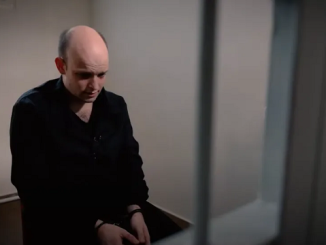
The Republican-dominated Legislature’s tense relationship with the state Supreme Court is hanging over this year’s legislative session as lawmakers take up two bills to deal with the aftermath of court rulings that Republicans don’t like. One of them is a fix to the state’s death penalty rules and the other a revision of the “stand your ground” law to better protect defendants claiming self-defense.
It’s no surprise that two other bills are seen as a shot back at the court — a proposal to limit justices’ terms to 12 years and a bill that would require them to file reports to the governor and Legislature on the timeliness of their decisions.
One of House Speaker Richard Corcoran’s priorities this session is to “reign in” the Supreme Court, which he said is trying to serve as two branches of government by writing laws.
“You see decision after decision after decision where courts are legislating from the bench,” Corcoran said.
Of the 2,300 or so bills before the Legislature, House Bill 1 would ask voters to change the state constitution to set 12-year term limits for Supreme Court and state appeals court judges. The fact that it’s the lowest numbered bill is symbolic of its importance to Corcoran.
“Nobody should have an office for life,” Corcoran said.
In Florida, that’s not necessarily the case. Voters can remove a Supreme Court justice from the bench and justices are forced to step down after they turn 70. And while Democrats have raised concerns about term limits, the GOP-backed bill sailed through committee approval and is ready for a full House vote.
“There’s open war against the judiciary,” said retired Supreme Court Justice James Perry, who stepped down Dec. 30 because of the mandatory retirement age for Florida justices. “They want to control us. We’re not their agency. They can’t control us. We’re not a political branch and that’s something they can’t seem to wrap their arms around.”
For the second year in a row, lawmakers are trying to fix the state’s death penalty. The U.S. Supreme Court in January 2016 declared the state’s death penalty sentencing law unconstitutional because it gave too much power to judges to make the ultimate decision. The Legislature responded by overhauling the law to allow the death penalty be imposed by at least a 10-2 jury vote.
In October, however, the state Supreme Court voted 5-2 to strike down the new law and require unanimous jury decisions for capital punishment — a decision Corcoran said created upheaval throughout the justice system. Bills are ready for votes in the House and Senate that would require unanimous decisions.
While Republicans are supporting the new death penalty bill, it doesn’t mean they’re happy about being forced to fix the law.
“Do I think the Supreme Court has shown a hostility to the death penalty? Sure. I do, but we have an issue before us,” said Republican Rep. Chris Sprowls, who chairs the House Judiciary Committee. “The court has made a decision, and we can either ignore that decision and continue to allow paralysis of the system, or we can fix it.”
Another bill addresses a 2016 Supreme Court ruling that states defendants making a “stand your ground” self-defense claim bear the burden of proof during pre-trial hearings. The bill would shift that burden to prosecutors.
Republican Sen. Rob Bradley is sponsoring the bill and he doesn’t hide the fact that Republican lawmakers aren’t fond of the court. He said that tension escalated when the Supreme Court forced lawmakers to give depositions in a lawsuit over the political maps they approved.
“That decision alone has created a real tension between our branches,” said Bradley. “My sense is that they are frustrated by some of the actions they see on the part of our branch. That tension, I don’t think, is unhealthy, but to not acknowledge that there is a tension would be ignoring reality.”
Another bill would force the court to file a report with the governor, attorney general and legislative leaders each year for the next five years detailing how long it takes the justices to rule on cases and detailing why there were delays when cases aren’t resolved within 180 days. Its sponsor, Republican Rep. Frank White of Pensacola, said if the court knows the Legislature is watching, it will try harder to resolve cases more quickly.
But Perry sees the bill as just another way to poke at the court and said it isn’t constitutional because one branch of government can’t tell another how to do its job.
“It’s a power play that they know they can’t win,” Perry said.
But he also noted there have been many other times lawmakers have ignored the constitution when passing legislation.
“The constitution trumps statutory law every time and it trumps them every time. They don’t seem to get it!” he said.
BY BRENDAN FARRINGTON
Source: islandpacket.com





Be the first to comment